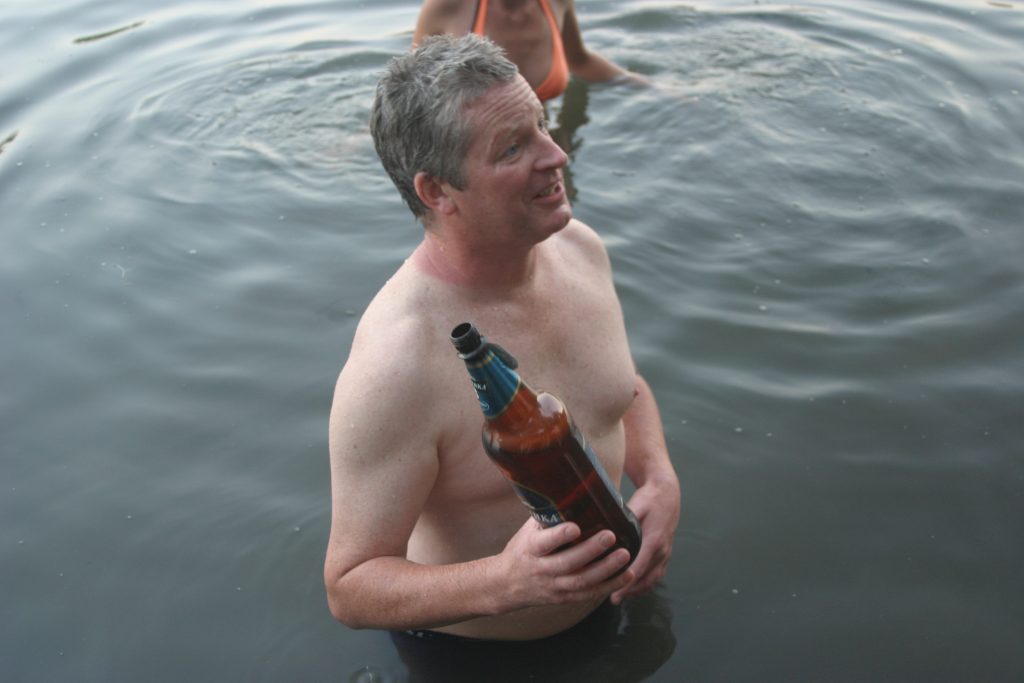PART 1: HOTEL INSTRUCTIONS
Badly translated instructions are often a source of hilarity, and those in my hotel in Saratov, on the mighty Volga River, were no exception.
Dear guests! We are glad to see you in the night.
Settle down. This is a tall building with 15 floors in it.
You may get from accommodation service the first medical aid.
Beauty salon. Full complex, cosmetological services, including hardware techniques.
If there any fire origins in the building you will hear about it from loudspeaker in the phone.
Your actions in an emergency ease. Please save tranquility and report immediately your name, location and character of accident.
Heaving no possibility to leave your room because of smoke ball in the building, stay in the your room, closing all the doors and windows beforehand.
If you are an eyewitness of the inflammation of the clothes on person, do not let him sharp motions as it can stimulate the fire.
I certainly didn’t fancy the hardware techniques and had no intention of bursting into a smoke ball or saving tranquility.
PART 2: NIGHT AT THE ZOO
Spending the night in a zoo is a bizarre experience, and one I savoured recently for three nights in Moscow zoo. The view from my room of the scarlet ibises seemed harmless enough, with their background chatter sounding like intermittent car alarms. But to my left, something altogether more scary – a pair of rare Asian lions, a tiger and a striped hyena. A quick glance at the moat surrounding their unfenced enclosures suggested they could surely make the leap to freedom.
Just as in the rain forest, most of the action happens in the middle of the night: the low, guttural roar of the lions that can be heard for miles in the wild. Deep and repetitive. Here it sounded twenty yards away – because it was. And the cackle of a hyena in the next enclosure.
I pulled the bedclothes over my head and descended into a fitful sleep full of mad, swirling dreams in which a range of wild animals discussed how they would like me presented on a plate.
What happens if you spend the night in a zoo? Simple: the animals sleep – you don’t.
PART 3: FALCONS OVER MOSCOW
Wildlife can thrive in the strangest places, as evidenced by urban foxes. But thanks to the efforts of one scientist, falcons are back in Moscow. They have been released at a number of the highest buildings – the so-called Stalin buildings – that provide a classic combination of height and privacy.
Our host takes us up to the 28th floor of Moscow University to the balcony outside the geology department, where we pick up the remains of previous kills for analysis, take in a superb view of the city, and watch a pair of goshawks being chased off by a the resident falcon.
Peregrine falcons are fast and tough. 80% of their diet is pigeons, but they have also perfected night hunting for migrating birds such as woodcock. They reverse their usual technique of stooping out of the sun, and instead use the urban glow to highlight their prey and ‘hunt upwards’.
Few locals will notice the presence of these magnificent birds, but they are there, as they now are in New York. A few strategic placements in London would certainly reduce the pigeon population.
PART 4: PRESSURE DRINKING
For those of you who think that the English have a drink problem, try visiting Russia. Although many of us drink too much, I would like to think that this usually comes about as a result of an evening taking on a life of its own, rather than the participants starting with the sole intention of getting plastered. I may be wrong, but in Russia the mission is clear.
Toasting with vodka shots is a matter of pride. At one baptism I attended by chance, the father of the child, in his mid-twenties, drank half a dozen shots in the first half an hour and then quit the scene. When I returned to my room for my camera, he was face down on the floor, and stayed there for five hours.
This is by no means confined to Russian youth. I woke up one morning after a lively night to find my hosts still drinking and smoking at 8am simply because there was “still some booze left over”. So that’s like a dog eating as much as possible in case another meal never arrives.
But the piece de resistance came from a professor in Moscow. After a charming day’s hospitality, he hit the bottle so hard at his self-hosted barbeque that he was comatose within an hour or so, leaving us to navigate our way back across town. Now that’s drinking with a purpose.
PART 5: LIFE AND DEATH IN DIAKOVKA
If you want a sharp reminder about life and death, then become a vet. Grappling with animal health issues in the wild is a far cry from stroking the odd cat and dog in Surrey.
On our Great Bustard mission, first there is a selection of dead birds that have been frozen and require post mortem analysis – not a job for the squeamish. After determining the cause of death in each case, we move on to examining eggs that haven’t hatched – not a glamorous job either. Most have become tangled and are unable to peck their way out because the egg tooth is snagged somewhere under a wing. Only one is infertile or NJJ (“Nyet jiggy jiggy”, as John the vet describes it).
Whilst we are in the field station at Diakovka, one bird dies flat out, others break wings by flying into netting, or are sat on by bigger birds and have their backs broken. Tough decisions have to be made about their prospects, in the same way as a horse that breaks a leg. A bird with only one wing cannot be imported to the UK, and certainly will not survive anywhere in the wild.
Decisions have to be made and acted upon fast, sometimes involving terminating a life. This is not a place for sentimentality. Sometimes individuals will not survive, but the broader picture is healthy – 20 fit birds will arrive in the UK ready for a new life, and to play their part in an historic introduction programme.
Enjoying a well-earned beer and a swim in Saratov after a hard day’s work at the Great Bustard field station. Happy days.


Leave A Comment